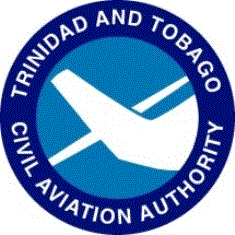Drones have posed danger to the lives of Government ministers said the Trinidad & Tobago Civil Aviation Authority (CAA), yet the technology will play such a big role in TT’s future that children should be allowed to fly them.
Some 60 persons met to discuss how to best regulate the use of drones in the skies of TT, on Thursday at the Civil Aviation Authority (CAA) Complex at Piarco.
The public consultation was led by CAA safety manager, Francis Regis, and CAA licensing manager, Kingsley Herrera. “A number of incidents have threatened the lives of Government ministers,” said Regis.
Those at the event were also told by Regis about how a drone hit a motorist on a highway, and also hit a party-goer in South Trinidad causing him to bleed.
Regis said Barbados has banned drones outright, while Grenada has “a major problem” with drones harassing beach-goers.
But participants also heard a plea for children as young as five years old to be able to master the device (under adult supervision) — just as youngsters now master an iPad device better than many adults.
Herrera and Regis led participants clause by clause through the proposals of a document, the Civil Aviation (No. 19) Unmanned Aircraft Systems Draft Regulations 2015. Suggestions are to be collated to amend the draft which in turn is to be sent to Cabinet and Parliament for consideration and approval.
The overall message coming out of the consultation was that drones will play an increasingly vital role in local businesses such as oil exploration and building construction but also pose a risk to personal privacy and aviation safety/security.
Further, while participants wanted relative freedom to use their drones, they were also concerned about being undermined by any influx of foreign drones.
Participants said they now actively use drones for both business and leisure.
One guest noted that drones can be weaponised and asked if licensing of drones should be done by the police as for the grant of firearms licences.
Regis said the CAA is trying to avoid enacting regulatory systems that will stymie the emerging drone industry.
“It’s a very good product.
We’d like children involved. Drones are the future of aviation.
Soon we’ll have aircraft transiting the world pilotless.” Much time was spent debating the rights of foreigners wanting to use drones in TT. While some participants urged a 30 day limited licensing of Caricom nationals using drones in TT, others said that a 90 day limit was more realistic for someone visiting TT to assist local businesses, and is more in line with TT’s duties under the Caricom Treaty.
Some discussion ensued on requests for exemptions from the ban on drone-use over Port-of- Spain, such as to video the Waterfront for tourism promotions.
Source: Trinidad & Tobago Newsday

